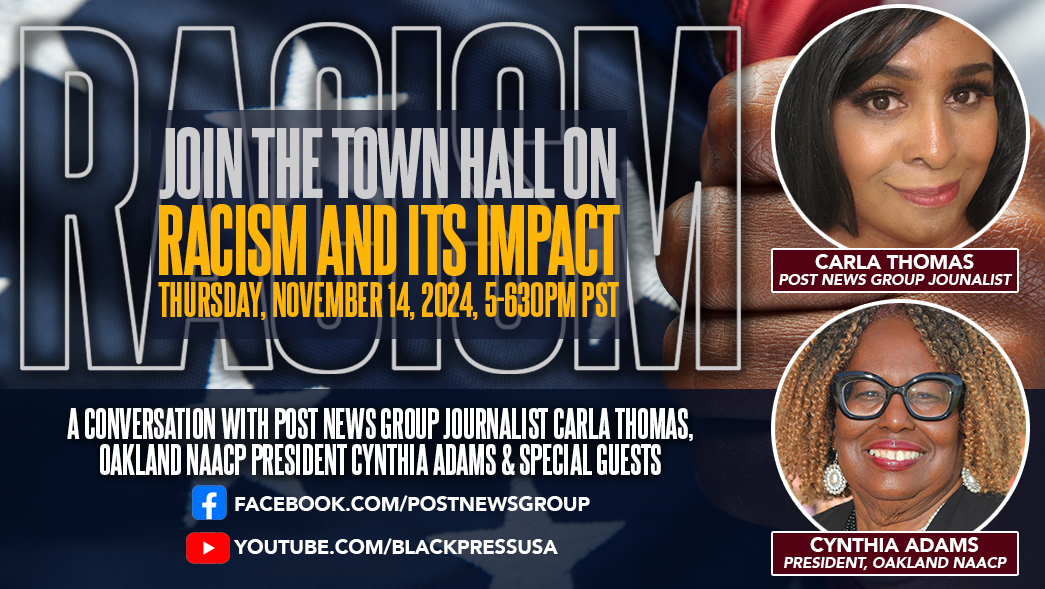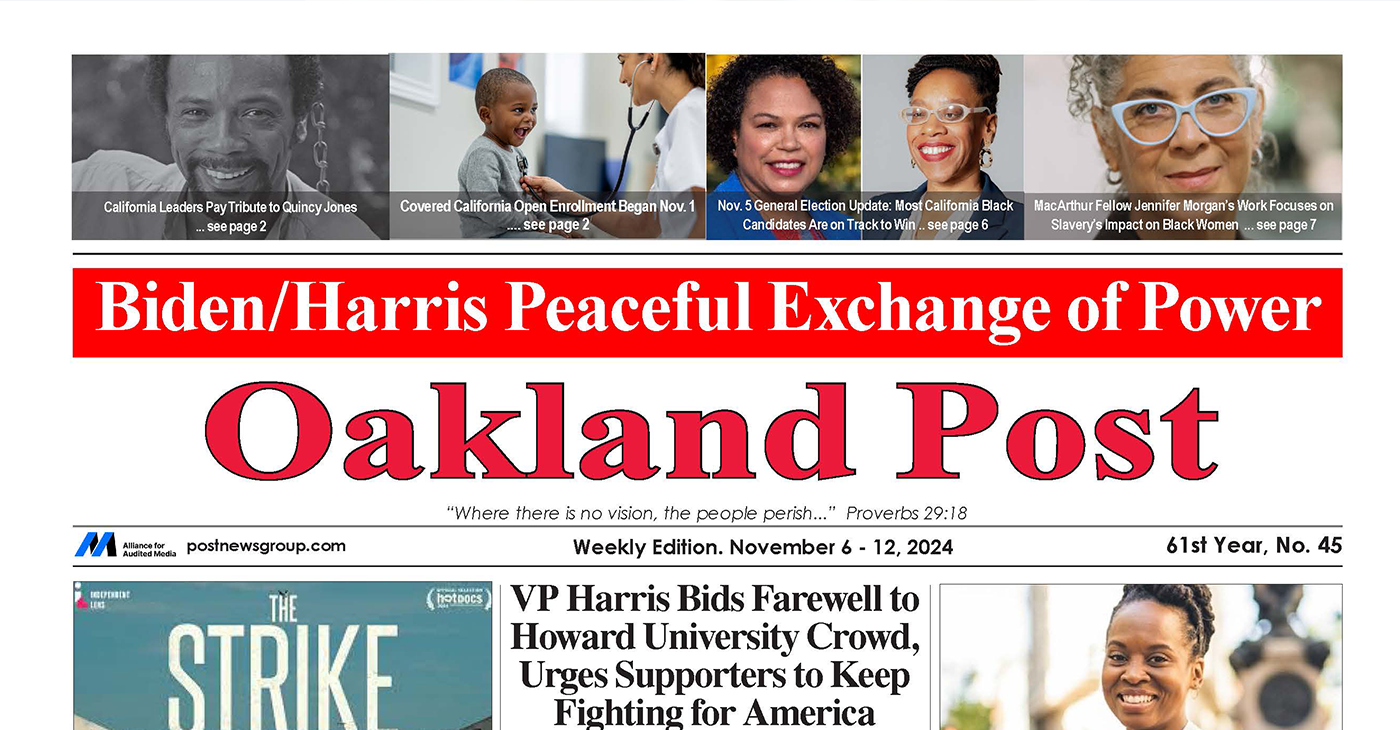Politics
Rats and Rot: NYC Report Rips Family Homeless Shelters

Beonca Williams takes her son Joshua Felix, 1, for a walk outside the Regent Family Residence, Thursday, March 12, 2015 in New York. A report issued Thursday by the city’s Department of Investigation found decrepit and dangerous conditions and lacking enforcement were rife in the city-paid, largely privately-run shelters that house nearly 12,000 homeless families with children. (AP Photo/Mark Lennihan)
JENNIFER PELTZ, Associated Press
NEW YORK (AP) — One family of six was living in a homeless-shelter apartment where a dead rat festered on the floor for days. Another family had no living-room furniture and had been without electricity for days.
At another family homeless shelter, a puddle of urine soiled the only working elevator. And at yet another, a stairway was so treacherously rusted that inspectors ordered guards to block access to it.
All those buildings were part of a system that costs the city Department of Homeless Services about $360 million a year, with the agency sometimes paying well above neighborhood market rates for apartments, the city Department of Investigation said in a report released Thursday. It found that decrepit, dangerous surroundings and lagging enforcement were rife in city-paid, largely privately run shelters that house nearly 12,000 homeless families with children.
“At its worst, DHS is turning a blind eye to violations that threaten the lives of shelter residents,” the report said. Department of Investigation Commissioner Mark G. Peters called the findings “bluntly Dickensian,” though he credited the homeless services agency with making some progress.
Officials say they have closed two problematic shelters, stopped housing children in two others and shuttered an average of 39 apartments a month for repairs.
More than half the 600-plus building and fire code violations the report identified have been fixed, inspections are tougher and more frequent, and other steps are coming, Homeless Services Commissioner Gilbert Taylor said.
“We are committed to fixing everything that needs to be fixed,” Deputy Mayor Lilliam Barrios-Paoli said by phone.
New York City is legally obligated to provide shelter to all homeless people who seek it — a number that has grown from an average of about 39,000 a night in the start of 2010 to over 60,000 this past November, according to the most recent data available from the nonprofit Coalition for the Homeless. The coalition called Thursday’s report “deeply disturbing” but credited the city with providing a plan to do better.
Family homeless shelters were bleakly spotlighted in December 2013, when The New York Times profiled an 11-year-old girl who lived amid mice and rotting walls in a Brooklyn shelter that no longer houses children. Mayor Bill de Blasio took office the next month and requested an investigation.
Investigators inspected 25 of the over 140 family shelters last spring and summer. They include converted hospitals with on-site social services, single-room occupancy hotels and “cluster sites,” or apartments within buildings that also house private tenants.
At cluster sites, inspectors reported roaches crawling on the walls, holes in the corners and inadequate security in buildings with histories of shootings and other crimes. Garbage was piled in halls and urine pooled in the elevator at a facility called the Brooklyn Acacia Cluster. A reeking, dead rat lingered for two days in a facility called the Bronx Neighborhood Cluster Annex, the report said.
The city pays an average of $2,450 a month for cluster site apartments, while the average rent in some of their neighborhoods is $1,200 a month and lower, the report said.
Private groups managing the Brooklyn Acacia, Bronx Neighborhood and some other cluster sites either declined to comment or didn’t immediately respond to requests for comment.
De Blasio’s administration has been emphasizing free-standing shelters, rather than cluster sites: The city opened 22 shelters last year with space for 5,500 people in all, compared to 225 cluster units.
But even some better-equipped shelters had fire code violations and other problems, including the rusted-out stairwell, the report said. It was one of two stairways in the 140-family, city-owned Regent Family Residence in Upper Manhattan.
The homeless services agency had known the stairway was deteriorating since 2012 and tried to get repair money. Ultimately, the city spent $637,000 for the guards who were ordered after the DOI inspection, plus over $750,000 to fix the stairs. They reopened in September.
Beonca Williams moved in two months ago with her 1-year-old son, and she’s been impressed.
“I can’t complain at all,” she said Thursday.
___
AP Photographer Mark Lennihan contributed to this report. Reach Jennifer Peltz on Twitter @ jennpeltz.
Copyright 2015 The Associated Press. All rights reserved. This material may not be published, broadcast, rewritten or redistributed.
Activism
Oakland Post: Week of November 13 – 19, 2024
The printed Weekly Edition of the Oakland Post: Week of November 13 – 19, 2024

To enlarge your view of this issue, use the slider, magnifying glass icon or full page icon in the lower right corner of the browser window. ![]()
Activism
LIVE! — TOWN HALL ON RACISM AND ITS IMPACT — THURS. 11.14.24 5PM PST
Join us for a LIVE Virtual Town Hall on the Impact of Racism hosted by Post News Group Journalist Carla Thomas and featuring Oakland, CA NAACP President Cynthia Adams & other Special Guests.
Thursday, November 14, 2024, 5 p.m. – 6:30 p.m. PST

Join us for a LIVE Virtual Town Hall on the Impact of Racism hosted by Post News Group Journalist Carla Thomas and featuring Oakland, CA NAACP President Cynthia Adams & other Special Guests.
Thursday, November 14, 2024
5 p.m. – 6:30 p.m. PST
Discussion Topics:
• Since the pandemic, what battles have the NAACP fought nationally, and how have they impacted us locally?
• What trends are you seeing concerning Racism? Is it more covert or overt?
• What are the top 5 issues resulting from racism in our communities?
• How do racial and other types of discrimination impact local communities?
• What are the most effective ways our community can combat racism and hate?
Your questions and comments will be shared LIVE with the moderators and viewers during the broadcast.
STREAMED LIVE!
FACEBOOK: facebook.com/PostNewsGroup
YOUTUBE: youtube.com/blackpressusatv
X: twitter.com/blackpressusa
Activism
Oakland Post: Week of November 6 – 12, 2024
The printed Weekly Edition of the Oakland Post: Week of November 6 – 12, 2024

To enlarge your view of this issue, use the slider, magnifying glass icon or full page icon in the lower right corner of the browser window. ![]()
-

 Alameda County3 weeks ago
Alameda County3 weeks agoAlameda County District Attorney Pamela Price Announces $7.5 Million Settlement Agreement with Walmart
-

 Activism3 weeks ago
Activism3 weeks ago‘Jim Crow Was and Remains Real in Alameda County (and) It Is What We Are Challenging and Trying to Fix Every Day,’ Says D.A. Pamela Price
-

 Bay Area3 weeks ago
Bay Area3 weeks agoIn the City Attorney Race, Ryan Richardson Is Better for Oakland
-

 Activism3 weeks ago
Activism3 weeks agoOakland Post: Week of October 30 – November 5, 2024
-

 Alameda County2 weeks ago
Alameda County2 weeks agoD.A. Price Charges Coliseum Flea Market Vendors in Organized Retail Theft Case
-

 Activism3 weeks ago
Activism3 weeks ago‘Criminal Justice Reform Is the Signature Civil Rights Issue of Our Time,’ says D.A. Pamela Price
-

 Activism3 weeks ago
Activism3 weeks ago“Two things can be true at once.” An Afro-Latina Voter Weighs in on Identity and Politics
-

 Arts and Culture3 weeks ago
Arts and Culture3 weeks agoMacArthur Fellow Jericho Brown’s Poetry Reflects Contemporary Culture and Identity





















































